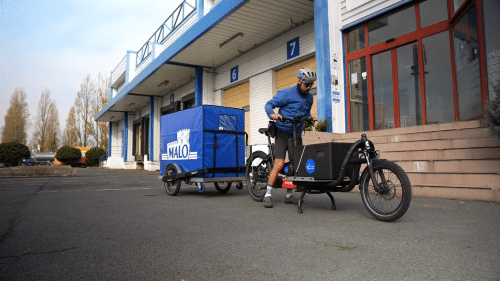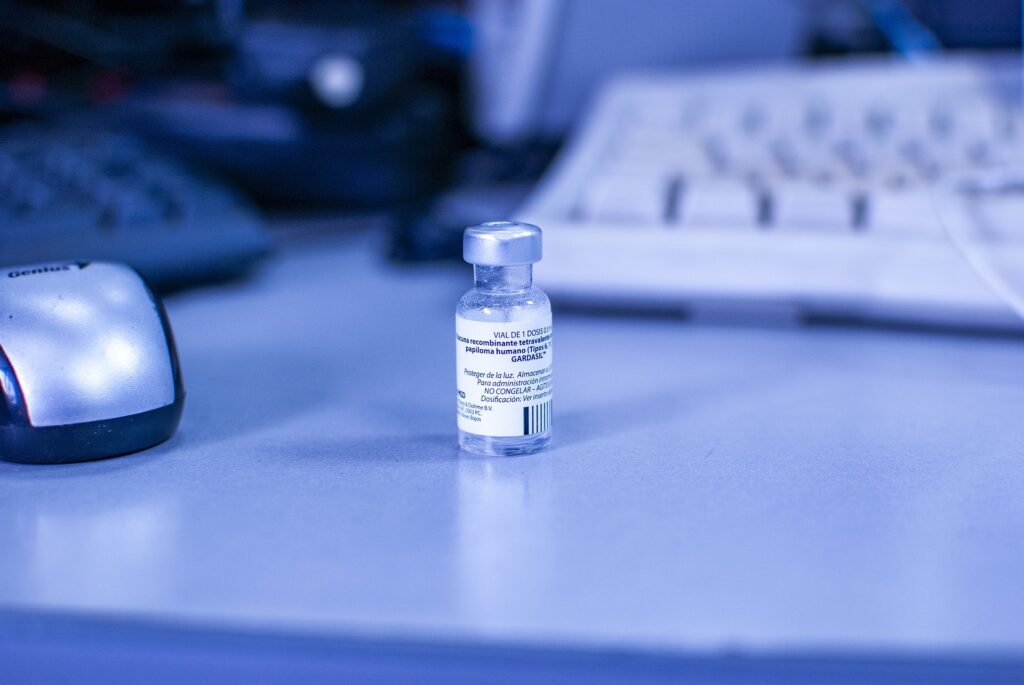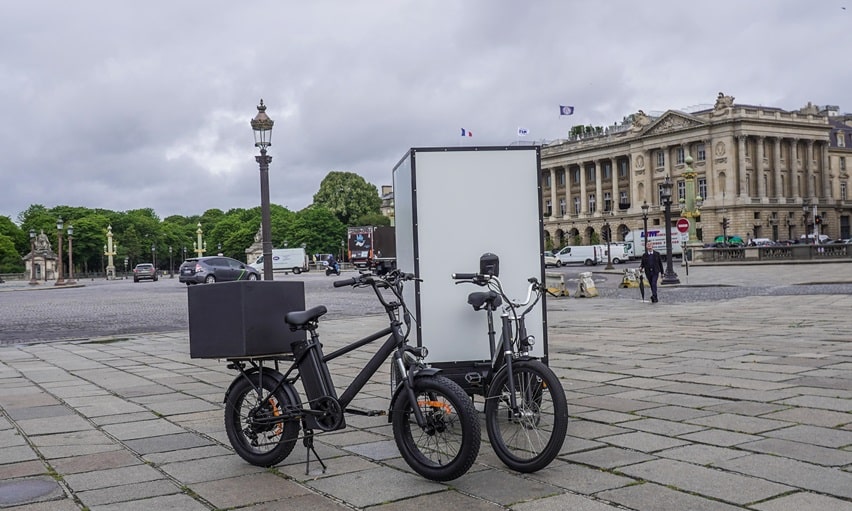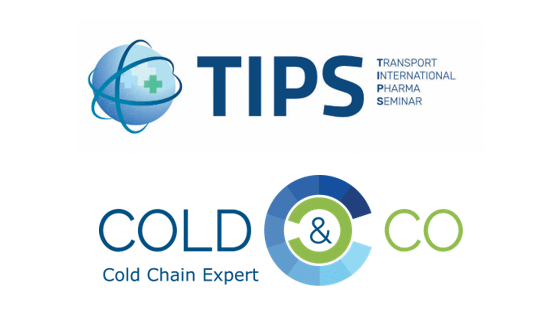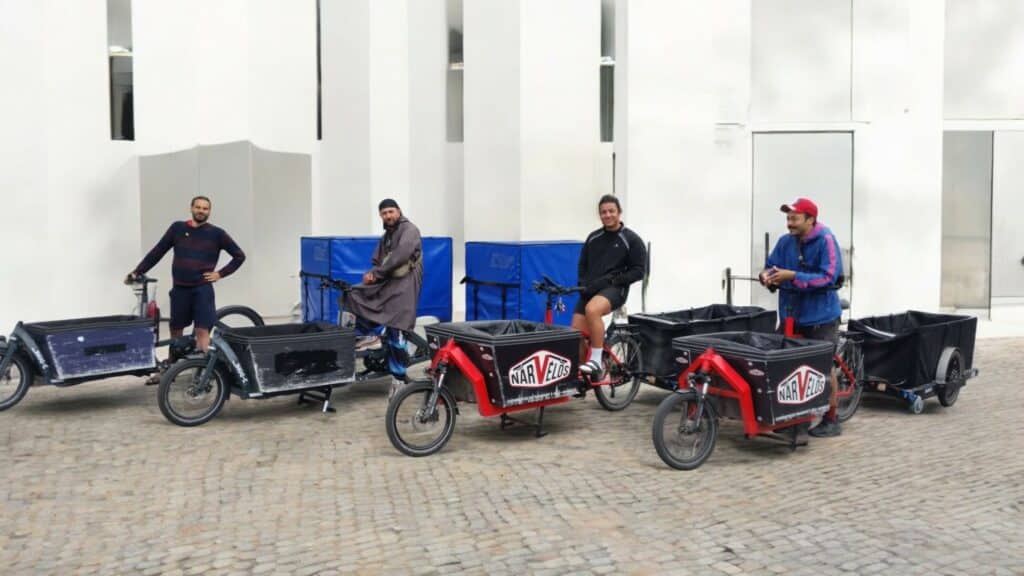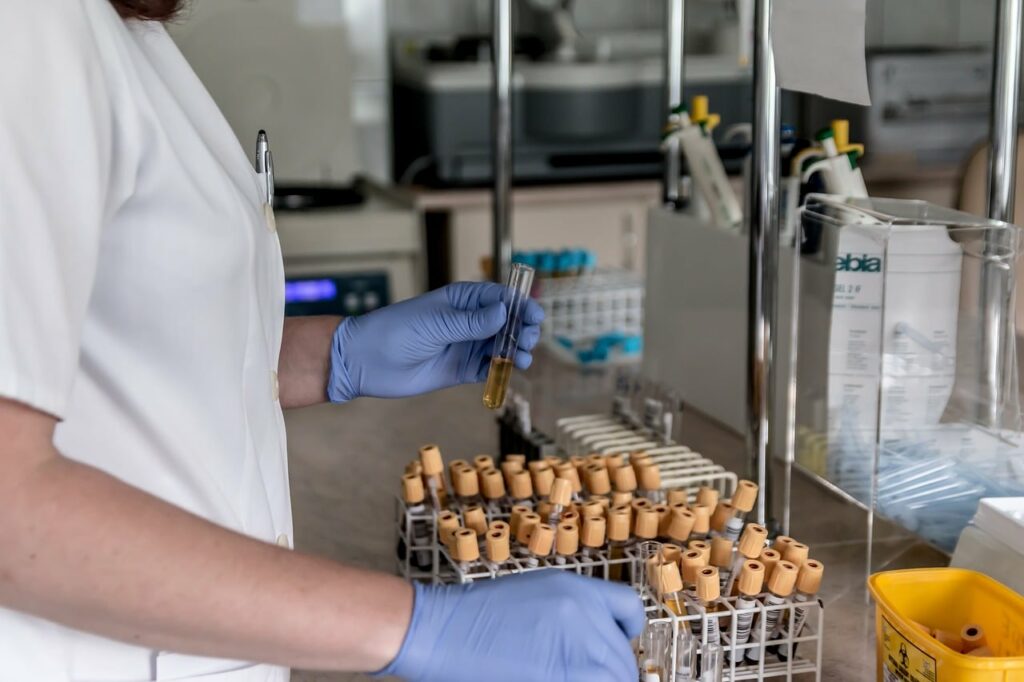The +18°C to +25°C thermal challenge at the heart of medical logistics
When it comes to transporting in vitro diagnostic medical devices (IVDMDs), certain entities face a very specific challenge: maintaining a strictly controlled temperature between 18°C and 25°C, whatever the season. In winter as in summer, this requirement for thermal stability is crucial to guaranteeing the reliability of diagnostic results. This level of precision requires rigorous temperature control.
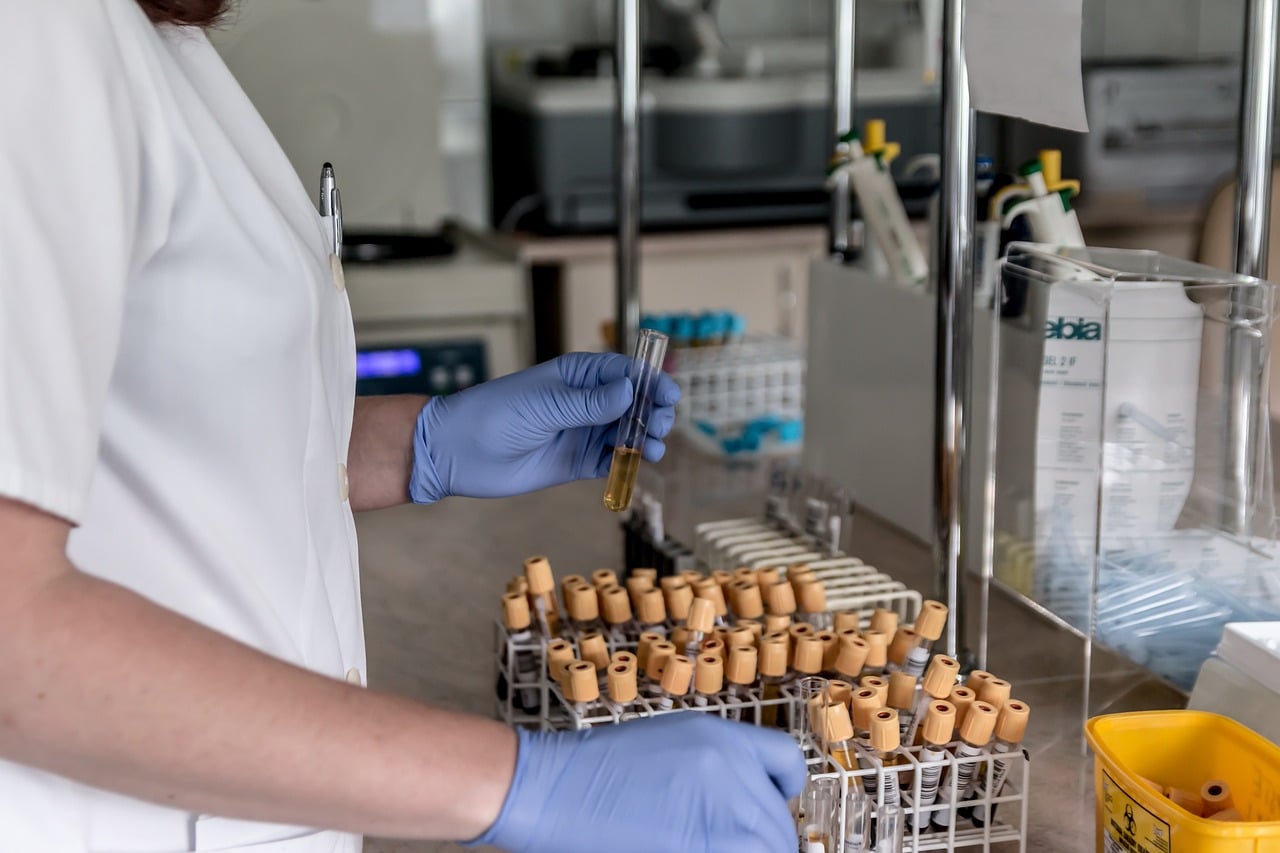
Passive cooling: an economical alternative to refrigerated trucks for transport between +18° and +25°C
To meet this requirement, an electrical or mechanical solution might have seemed obvious.
Using a refrigerated truck calibrated between 18°C and 25°C can become a cumbersome and costly solution, especially when only a fraction of the goods need this thermal precision.
Between the initial investment, energy consumption and wasted space, these logistics are often disproportionate to the real need.
In this context, the choice of passive cooling is a flexible, economical and efficient alternative, particularly suited to short delivery routes of between 3 and 5 hours maximum, where thermal rigor remains paramount without the need for the infrastructure of a mechanical chiller.
Isothermal transport 18-25°C: how PCM+18 plates ensure a stable temperature in summer and winter alike
This method of preservation is based on the use of PCM+18 eutectic plates, packaged according to two specific protocols: one for winter and one for summer. This rigorous preparation process enables us to precisely control the holding temperature, depending on the outside temperature and transport time. COLD & CO explains!
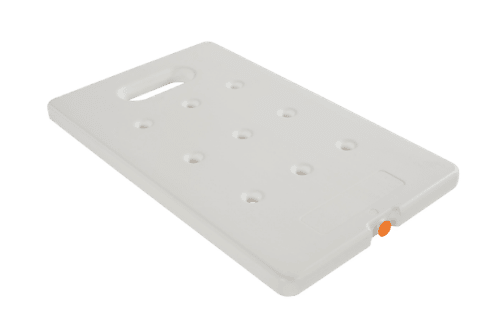
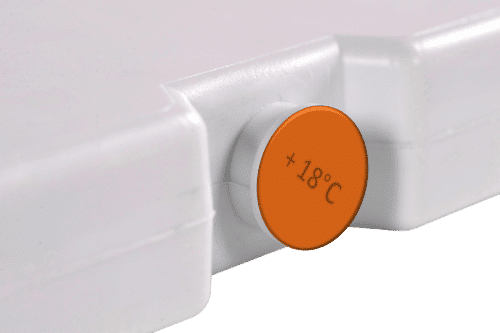
How do PCM+18 eutectic plates work?
The operation of PCM+18 eutectic plates is based on a simple but extremely effective physical principle: the change of state at a precise temperature, in this case +18°C. This ability to absorb or release thermal energy as they melt or solidify enables them to maintain a stable ambient temperature of between 18°C and 25°C.
Their preparation varies according to the season:
When outside temperatures exceed 25°C, the slabs must be cold-packed.
They are first placed in a refrigerator at 4°C until they are completely solidified (between 24 and 48 hours, depending on total mass).
They are then stabilized at 18°C for around 30 minutes in an oven to avoid a cold peak when inserted into the isothermal container.
Initially solid, they gradually melt during transport, absorbing excess heat and guaranteeing an interior temperature below 25°C.
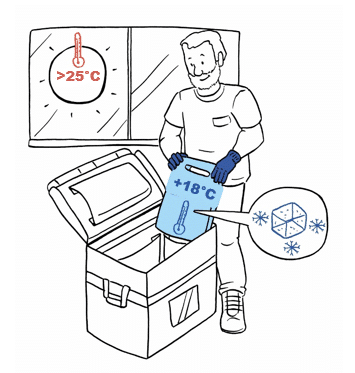
Thermal performance at outdoor temperatures above 25°C
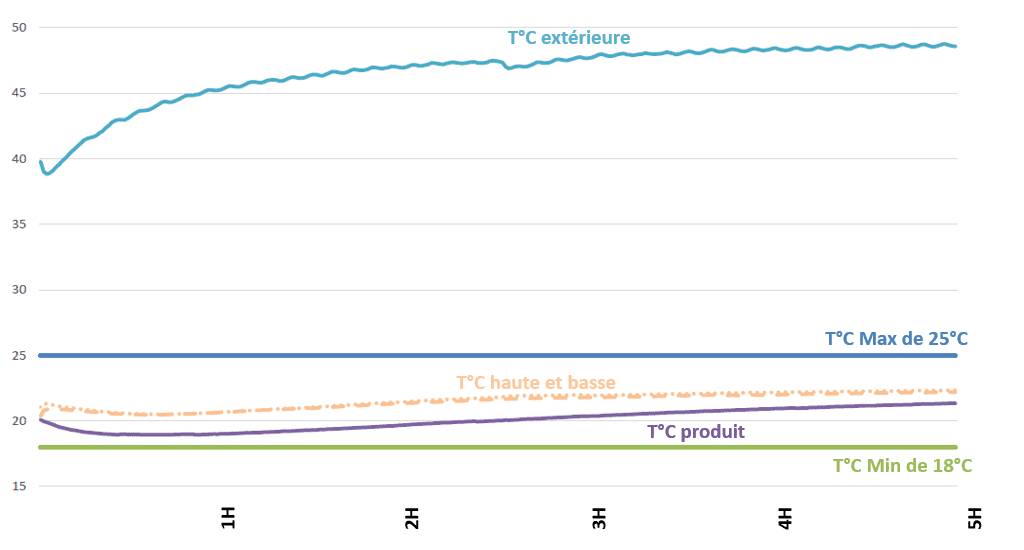
When outside temperatures drop below +18°C, the protocol is reversed. The plates are hot-packed, kept at 30°C for around 8 hours in an oven until they are completely liquefied. In this liquid state, they will solidify during transport, capturing excess cold and preventing them from falling below the target temperature.
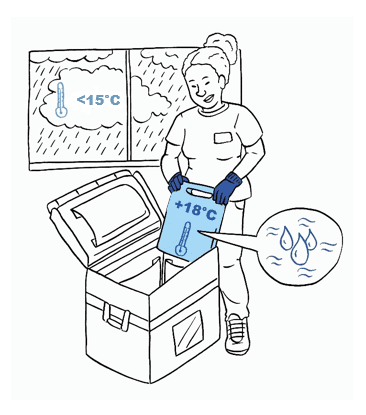
Thermal performance at outdoor temperatures below 18°C
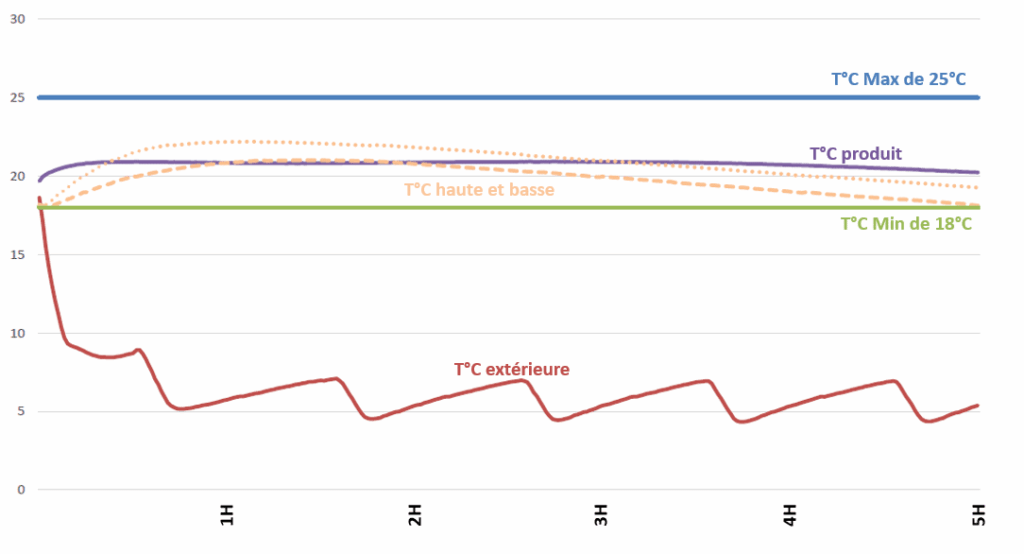
And when the outside temperature is already between +18°C and +25°C? Regardless of the protocol used, PCM+18 plates – whether solid or liquid – will make an effective contribution to stabilizing temperatures between +18°C and +25°C. Their ability to react to even the slightest deviations guarantees an atmosphere faithful to the required range, without overheating or excessive cooling.
Thermal performance at outdoor temperatures between 18°C and 25°C
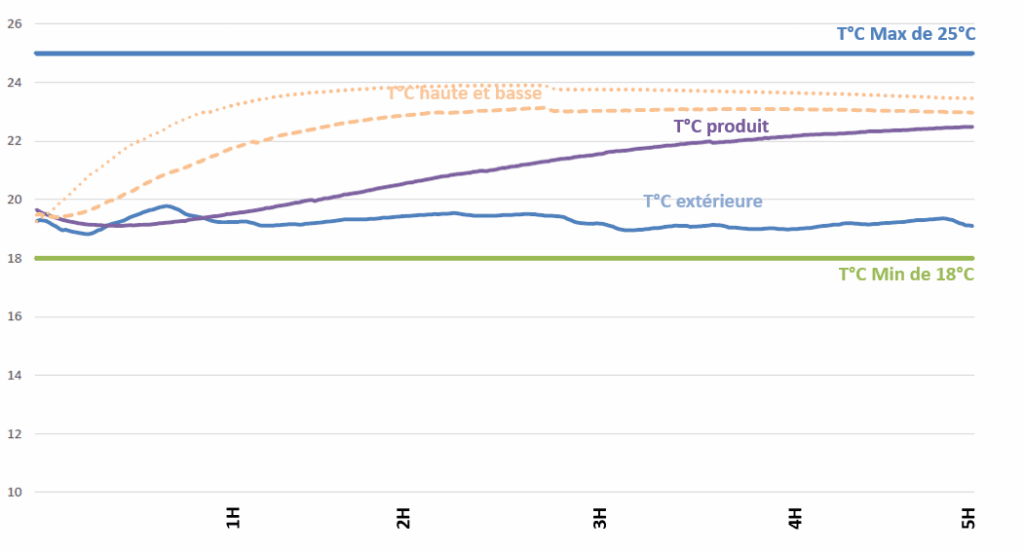
With a change-of-state point of +18°C, the ambient eutectic plates will melt or solidify depending on the outside temperature, absorbing excess heat or cold. This simple, natural mechanism maintains a stable ambient temperature, perfectly suited to heat-sensitive medical products and devices.
COLD & CO's CarryTemp XL6 insulated container with +18°C eutectic plates for transporting medical devices between 18°C and 25°C.
This is where COLD & CO’s CarryTemp XL6 solution comes into its own. This self-contained insulated cabinet, with a useful volume of 600L, offers reliable temperature maintenance without electricity. Equipped with highly insulating polyurethane panels and a natural convection heat diffusion system, it maintains products at ambient temperature thanks to +18°C eutectic plates.
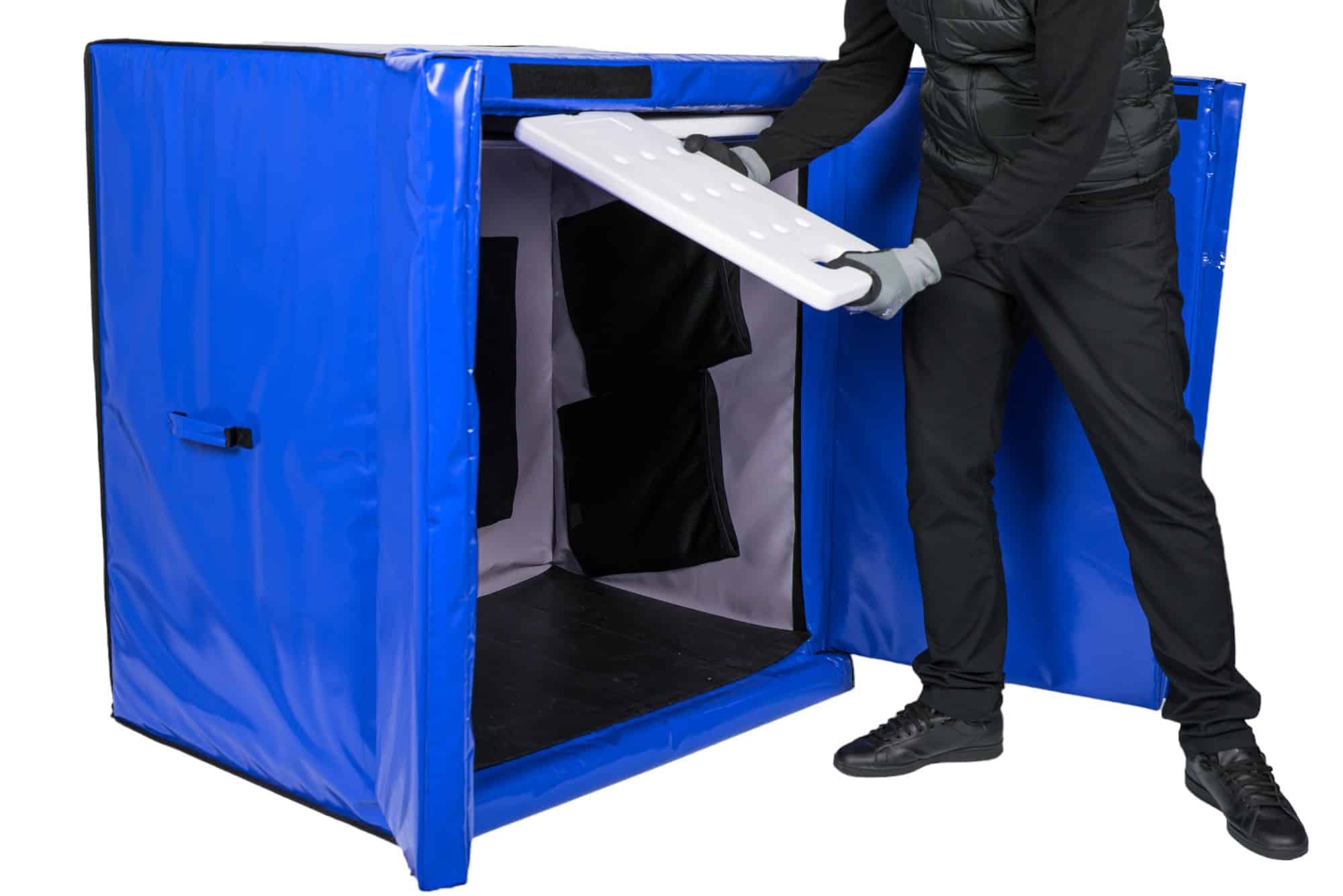
The CarryTemp XL6‘s ergonomic design makes it easy to integrate into a fleet of standard vehicles. Compatible with the most common vans, it can be used to temporarily transform a van into a fully-fledged insulated vehicle.
An agile, high-performance solution for transporting medical devices between 18°C and 25°C:
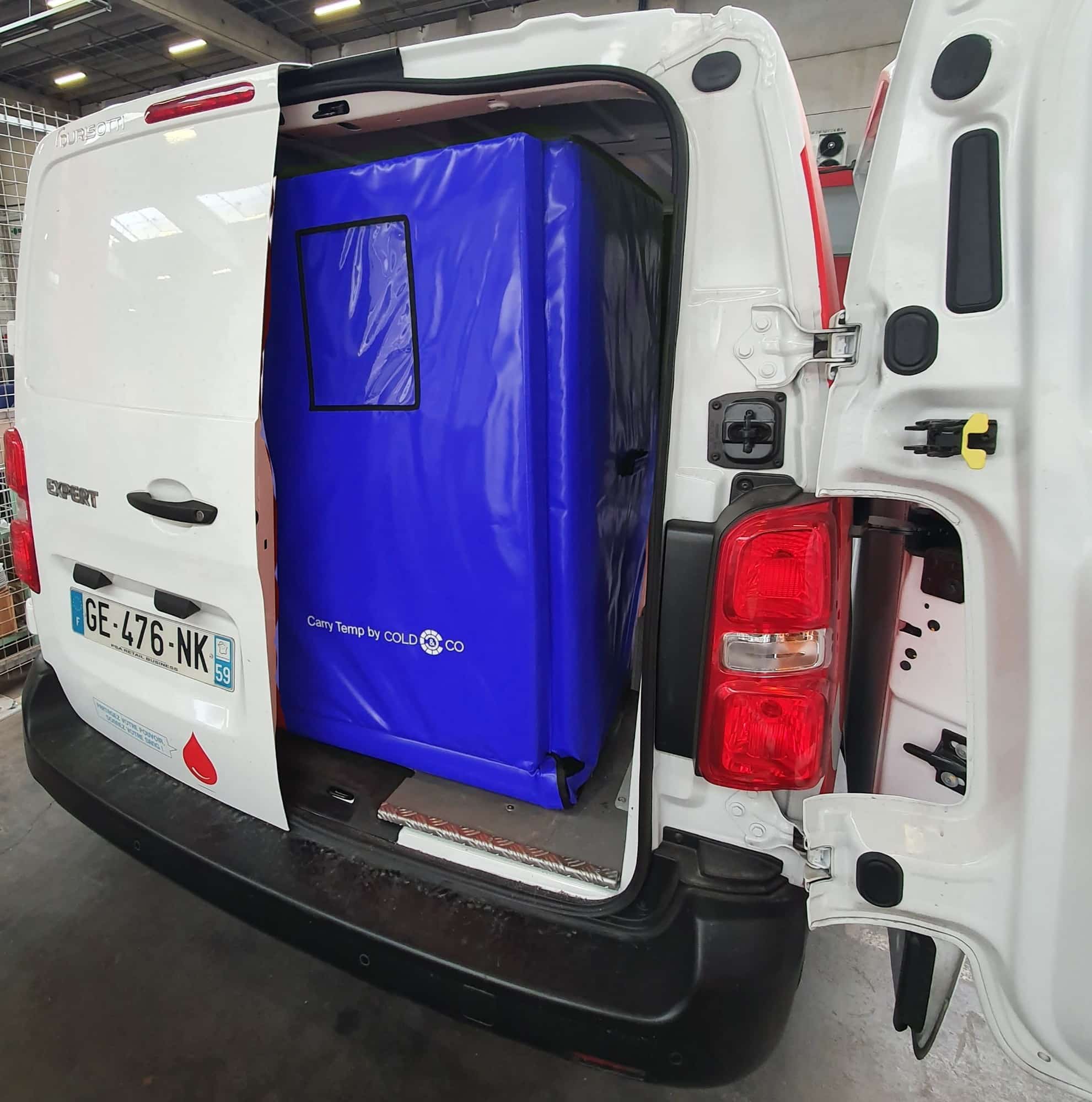
Thanks to its low weight (30 kg empty), robustness, easy maintenance and ATP-certified thermal performance, the CarryTemp XL6 represents a strategic alternative to traditional refrigerated transport solutions. Its use demonstrates that, even for complex requirements such as maintaining temperatures between 18°C and 25°C, passive refrigeration can be precise, reliable and respectful of logistical constraints in the field.
Need to design a logistics solution for transporting your medical devices between 18°C and 25°C?
Our team is at your disposal to help you choose the right isothermal container, configure PCM+18 eutectic plates and define packaging protocols adapted to your flows.
Contact us today to build together
a customized solution.


